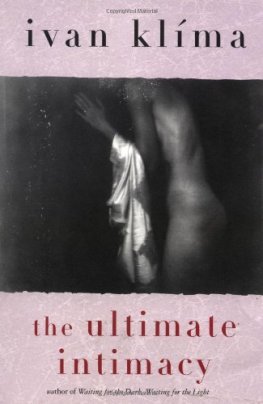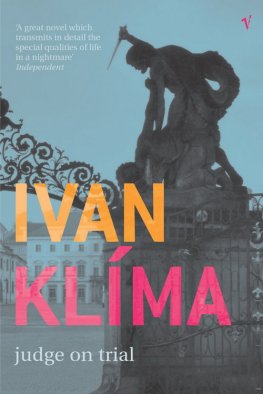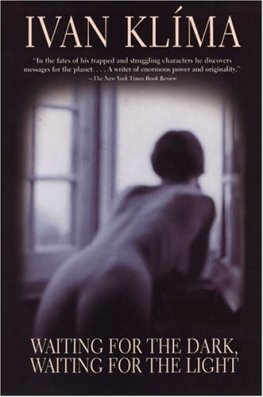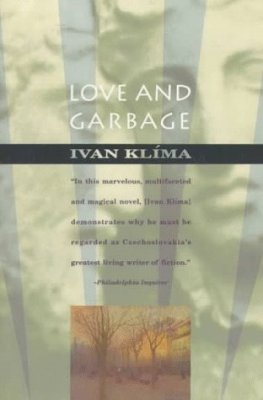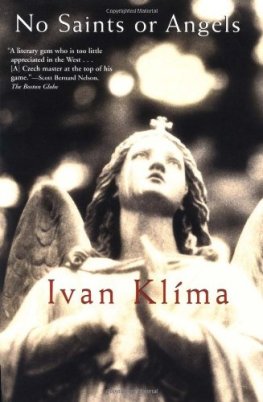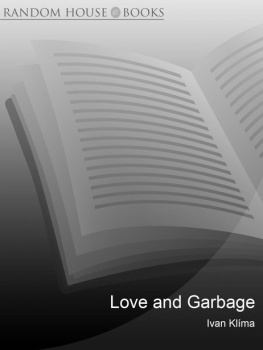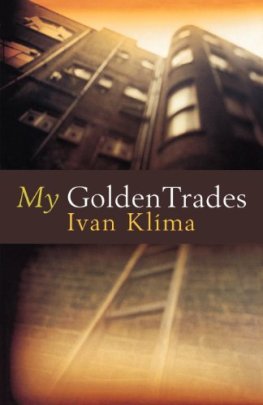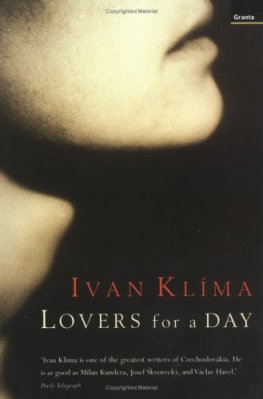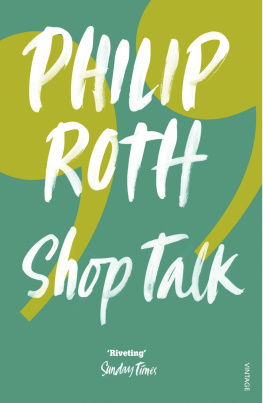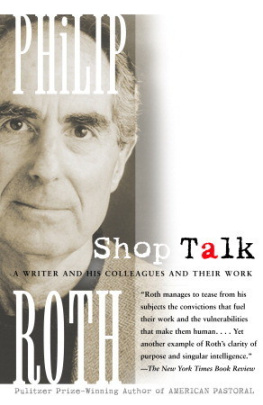Ivan Klma
My Crazy Century: A Memoir
MY CRAZY CENTURY: A MEMOIR
A young Czech editor from BBC Radio, for whom I sometimes wrote commentary, once asked me, Why dont you write about why you were a Communist in your youth? I think listeners would be very interested.
I realized that although I had used many of my experiences as material for my prose, I had avoided my several-year membership in the Communist Party, perhaps with the exception of a few mildly autobiographical passages in my novel Judge on Trial.
For quite a long time now I have considered the Communist Party or, more precisely, the Communist movement, a criminal conspiracy against democracy. And it is not pleasant to remember that, even though it was for only a short period, I had been a member of this party.
But was my young colleague from the BBC correct? Who today could be interested in the reasons why so many people from my generation succumbed to an ideology that had its roots deep in the thinking, in the social situation and societal atmosphere, of the turn of the nineteenth and twentieth centuries?
Marxism, which invoked a Communist ideology, is today somewhat forgotten. Its revolutionary theories have been refuted by practice. These days people are threatened much more by international terrorism; instead of battling Marxism, democracy is battling radical branches of Islam.
But it is less ideology than the need of people, especially the young, to rebel against a societal order that they did not create themselves and do not consider their own. Besides, people need to have some kind of faith or goal they consider higher than themselves, and they are inclined to see the world and its contradictions in unexpected, apparently simple relationships, which appear to explain everything that is important, everything they are going through, or everything with which they do not agree. And for these often deceptive goals they are willing to sacrifice even their lives.
All ideologies of the past that led to murder could evolve only when they had purged from the minds of the people everything they considered inappropriate and compelled the people to fanatical loyalty to their ideas, which they proclaimed appropriate. In this they did not differ from contemporary ideologies that lead to terrorist murder.
Perhaps this attempt of mine to recount and analyze what took place in my life might have meaning even for those who consider communism a long-dead idea. In my account, I mainly concentrate on the circumstances that, in this crazy century, often led mankind astray, sometimes with fatal consequences.
My first memory is of something insignificant: One day Mother took me shopping in an area of Prague called Vysoany and asked me to remind her to buy a newspaper for Father. For me, it was such an important responsibility that I still remember it. The name of the newspaper, however, I no longer recall.
My parents rented two rooms and a kitchen in a house that was occupied by, in addition to the owner, a hunting dog with the elegant name of Lord. Birds, mainly blackbirds and thrushes, nested in the garden. When you are four or five, time seems endless, and I spent hours watching a blackbird hopping about the grass until he victoriously pulled a dew worm out of the earth and flew back with it to his nest in the juniper thicket, or observing how snowflakes fell on our neighbors woodshed roof, which to me was like a hungry black-headed monster, gobbling up the snowflakes until it was sated and only then allowing the snow to gradually accumulate on the dark surface.
From the window of the room where I slept there was a view into the valley. From time to time, a train would pass, and at the bottom of the vale and on the opposite slopes huge chimneys towered into the sky. They were almost alive and, like the locomotives, they belched forth plumes of dark smoke. All around there were meadows, small woodlots, and thick clumps of shrubbery, and when the trees and bushes were in bloom in the springtime I began to sneeze, my eyes turned red, and I had trouble breathing at night. Mother was alarmed and took my temperature and forced me to swallow pills that were meant to make me perspire. Then she took me to the doctor, who said it was nothing serious, just hay fever, and that it would probably afflict me every spring. In this he was certainly not wrong.
It was in one of those chimneyed factories, called Kolbenka, that my father worked. He was an engineer and a doctor, but not the kind of doctor who cures people, Mother explained: He cured motors and machines and even invented some of them. My father seemed larger than life to me. He was strong, with a magnificent thatch of black hair. Each morning he shaved with a straight razor, which I was not allowed to touch. Before he began lathering his face, he sharpened the razor on a leather belt. Once, to impress upon me how terribly sharp it was, he took a breakfast roll from the table and very gently flicked it with the blade. The top half of the roll toppled onto the floor.
Father had a bad habit that really annoyed Mother: When he walked along the street, he was always spitting into the gutter. Once when he took me for a walk to Vysoany, we crossed the railway tracks on a wooden bridge. A train was approaching, and to amuse me Father attempted to demonstrate that he could spit directly into the locomotives smokestack. But a sudden breeze, or perhaps it was a blast of smoke, blew my fathers new hat off and it floated down and landed on an open freight car heaped with coal. It was then I first realized that my father was a man of action: Instead of continuing on our walk, we ran to the station, where Father persuaded the stationmaster to telephone ahead to the next station and ask the staff to watch the coal wagons and, if they found a hat on one of them, to send it back. Several days later Father proudly brought the hat home, but Mother wouldnt let him wear it because it was covered in coal dust and looked like a filthy old tomcat.
Mother stayed at home with me and managed the household: She cooked, did the shopping, took me on long walks, and read to me at night until I fell asleep. I always put off going to sleep for as long as I could. I was afraid of the state of unconsciousness that came with sleep, afraid above all that I would never wake up. I also worried that the moment I fell asleep my parents would leave and perhaps never come back. Sometimes they would try to slip out before I fell asleep and I would raise a terrible fuss, crying and screaming and clutching Mothers skirt. I was afraid to hold on to Father; he could yell far more powerfully than I could.
It is not easy to see into the problems, the attitudes, or the feelings of ones parents; a young person is fully absorbed in himself and in the relationship of his parents to himself, and the fact that there also exists another world of complex relationships that his parents are somehow involved in eludes him until much later.
Both my parents came from poor backgrounds, which certainly influenced their way of thinking. My mother was the second youngest of six children. Grandfather worked as a minor court official (he finished only secondary school); Grandmother owned a small shop that sold womens accessories. Her business eventually failed the era of large department stores was just beginning and small shops couldnt compete.
Grandpa and Grandma were truly poor. The eight-member family lived in a two-room flat on Petrsk Square, and one of those rooms was kept free for two subtenants, whose contribution ensured that my grandparents were able to pay the rent. Nevertheless, they made certain their children got an education: One of my aunts became the first Czech woman to get a degree in chemical engineering, and my mother graduated from a business academy.


